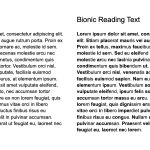Last Updated on 21/11/2025 by Eleanor Thompson
Abstract
The Socratic method, rooted in the pedagogical practices of the ancient Greek philosopher Socrates, emphasises the power of questioning to stimulate critical thought and self-awareness. Instead of direct instruction, this dialogical approach fosters active student participation, leading to profound self-discoveries, improved communication skills, and the rectification of misconceptions. However, its efficacy hinges on skilled facilitation and is often time-consuming, with potential risks of student frustration or dominance by a few voices. Although not universally applicable, when wielded judiciously, the Socratic method can transform educational experiences. Supplementary resources, including books and dedicated websites, provide deeper insights and practical applications for those keen to explore this timeless teaching methodology.
Introduction
The Socratic method, named after the ancient Greek philosopher Socrates, is a teaching approach predicated on the art of questioning. Rather than dispensing knowledge directly, this method seeks to stimulate critical thinking and illuminate ideas by encouraging students to ask and answer questions. This essay delves into the mechanics, merits, and potential challenges of the Socratic method in teaching.
Historical Context
To fully understand the Socratic method, it’s crucial to recognise its origins. Socrates, who lived from 470 to 399 BCE, often engaged in public discussions where he posed a series of questions to his interlocutors. By doing so, he encouraged them to define terms, refine thoughts, and critically evaluate their own beliefs. These conversations, immortalised by his student Plato, often led the interlocutor to realise the inconsistencies or fallacies in their initial beliefs, and to arrive at a clearer, more refined understanding.
Mechanics of the Method
At its core, the Socratic method involves:
- Beginning with a Thesis: A student or teacher states a belief or principle.
- Elicitation of Responses through Questions: The teacher, adopting the Socratic role, questions this thesis. The purpose isn’t necessarily to disprove, but to explore its validity, boundaries, and implications.
- Reflective Answering: The student responds, and through this dialogical process, both participants (or even a whole class) embark on a journey of intellectual exploration.
- This method is cyclical. The answers to the questions often lead to more questions, pushing deeper into the subject matter.
Merits of the Socratic Method
Fosters Critical Thinking
In a world inundated with information, it’s not the sheer quantity of knowledge that matters but the quality of our understanding. The Socratic method, by its very nature, pushes students to critically evaluate and analyse the information presented to them. Instead of rote memorisation or passive reception, students are prompted to question the veracity, implications, and underpinnings of every idea. Through this rigorous process, they develop a discerning mind, capable of distinguishing between sound arguments and fallacious ones. This acquired ability to critically assess information serves them not just in academia but in daily life, where they are constantly confronted with myriad claims, opinions, and arguments.
Cultivates Active Participation
Traditional teaching methods can often relegate students to the role of mere spectators in their educational journey. In contrast, the Socratic method demands their active involvement. Each question posed beckons a response, each answer given can lead to further inquiry. This continuous exchange ensures that students are not just passive recipients but active contributors to the learning process. Such active participation not only makes the learning experience more engaging but also ensures better retention and understanding, as students are more likely to remember discussions they actively partook in as opposed to lectures they merely listened to.
Encourages Self-Discovery
One of the most profound aspects of the Socratic method is its potential for self-discovery. When students arrive at conclusions themselves, the understanding is often deeper and more personal. Instead of being told a fact or a concept, they unearth it, making the knowledge truly their own. This process of self-discovery also boosts their confidence, as they realise their own potential to reason, deduce, and understand complex ideas. Beyond the classroom, this self-reliance in the realm of thought prepares them for independent problem-solving in various facets of life.
Builds Communication Skills
Engaging in Socratic questioning is not just a mental exercise; it’s a communicative one. As students are prompted to voice their opinions, defend their viewpoints, and challenge others’, they inadvertently hone their communication skills. They learn the art of articulation, the importance of clarity, and the value of persuasive argumentation. These are invaluable skills that transcend the classroom, proving beneficial in professional settings, social situations, and even in personal relationships.
Exposes and Corrects Misunderstandings
One of the subtler yet powerful advantages of the Socratic method is its ability to bring to light misconceptions and misunderstandings. In traditional teaching, a student might harbour a wrong idea for a long time, and it might never be addressed. But in the interactive, question-centred Socratic approach, these misconceptions are often exposed. When a student voices an incorrect or incomplete understanding, it provides an immediate opportunity for correction, ensuring that their foundational knowledge is robust and accurate.
Challenges and Limitations
Requires Skilled Facilitation
The Socratic method isn’t just about asking questions; it’s about asking the right questions. For it to be effective, the educator must be adept at guiding discussions, recognising teachable moments, and ensuring that the dialogue remains constructive. An inexperienced or unskilled facilitator might ask leading questions, stifle dissenting opinions, or allow discussions to deviate too far from the core topic. These missteps can diminish the value of the method, leaving students feeling lost or frustrated. Thus, the success of this method hinges significantly on the expertise and sensitivity of the facilitator.
Time-Consuming
Deep, probing discussions invariably demand time. In contrast to more direct methods of instruction where an educator can present a set amount of information in a given time, the Socratic method, with its back-and-forth nature, can be unpredictable in terms of how much content gets covered in a session. While the depth of understanding can be profound, the breadth can be limited. For curricula that have extensive content requirements, using the Socratic method exclusively can be challenging, as it might not allow educators to cover all necessary material within the stipulated time.
Potential for Frustration
The very essence of the Socratic method — continual questioning without straightforward answers — can be both its strength and its Achilles heel. While it can lead to deep insights, it can also lead to feelings of being led in circles or chasing elusive truths. If students feel that there’s a “correct” answer that they’re expected to guess or arrive at, they might become frustrated if they can’t discern it. Furthermore, if they perceive the questioning as excessive or pointless, they might become disengaged or resentful.
Not Suitable for All Topics
While the Socratic method shines when delving into abstract concepts, moral quandaries, or areas where critical thinking is paramount, it’s not always the best fit for all subjects. For instance, teaching foundational facts, procedural steps, or certain technical skills might be more efficiently achieved through direct instruction. Imagine trying to teach the basics of arithmetic or the steps to solve a mathematical equation solely through Socratic questioning — it might prove tedious and counterproductive. Hence, educators need to discerningly choose where and how to deploy this method.
Risk of Dominant Voices Overpowering Others
In a group setting, there’s always the potential for a few dominant voices to overshadow quieter participants. If an educator doesn’t manage the dynamics well, the Socratic method can inadvertently become a platform for only a subset of students, leaving others feeling sidelined or unheard. This can be particularly challenging in diverse classrooms where cultural, linguistic, or personal differences can influence students’ willingness or ability to participate actively. Ensuring that all students have an equal opportunity to engage is vital, but it can be a significant challenge in implementing the Socratic method effectively.
Conclusion
The Socratic method, though ancient, remains a powerful pedagogical tool. Its emphasis on critical thinking and active engagement makes it especially relevant in an era that values these skills. While it’s not without challenges, when applied judiciously and skilfully, the Socratic method can transform the classroom into a space of vibrant intellectual exploration. It reminds us that education is not just about the passive absorption of facts, but about the active cultivation of a questioning and informed mind.
Further reading
The Socratic Method: Plato’s Use of Philosophical Drama by Ruby Blondell
This book provides an in-depth exploration of the Socratic method as presented in Plato’s dialogues. Blondell examines how Socrates engages with his interlocutors and offers insights into the philosophical significance of his method.
Teaching Critical Thinking: Practical Wisdom by Bell Hooks
While not exclusively about the Socratic method, Bell Hooks’ exploration of teaching provides invaluable insights into the need for critical engagement in the classroom, aligning closely with the principles of Socratic questioning.
Socratic Circles: Fostering Critical and Creative Thinking in Middle and High School by Matt Copeland
This book delves into the practicalities of employing the Socratic method in modern classrooms, offering educators actionable strategies and insights.
Critical Thinking Web
This site, hosted by the University of Hong Kong, offers free courses, tutorials, and exercises on critical thinking, logic, and reasoning. It’s a treasure trove for those wanting to delve into the underpinnings of the Socratic method.
Website URL: https://philosophy.hku.hk/think/
The Socratic Method Research Portal
This website is dedicated entirely to the study and application of the Socratic method. It provides a detailed history, various perspectives, and practical applications of the method.
Website URL: http://www.socraticmethod.net/
The Foundation for Critical Thinking
An organisation dedicated to the advancement of fair-minded critical thought, this website offers resources, research, and strategies for educators and students alike. While broader than just the Socratic method, the emphasis on questioning, reasoning, and evaluation aligns closely with Socratic principles.
Website URL: https://www.criticalthinking.org/
Special thanks Sven Seiler for providing the image
Author Profile
Latest entries
 Resources2024.01.25Animals That Start With The Letter N
Resources2024.01.25Animals That Start With The Letter N Bionic Reading2023.09.22Bionic Reading for Dyslexia: A Potential Bridge to Enhanced Comprehension
Bionic Reading2023.09.22Bionic Reading for Dyslexia: A Potential Bridge to Enhanced Comprehension Bionic Reading2023.09.21Bionic Reading for ADHD: Harnessing the Power of Visual Cues to Aid Focus and Comprehension
Bionic Reading2023.09.21Bionic Reading for ADHD: Harnessing the Power of Visual Cues to Aid Focus and Comprehension Bionic Reading2023.09.20Bionic Reading Method
Bionic Reading2023.09.20Bionic Reading Method




